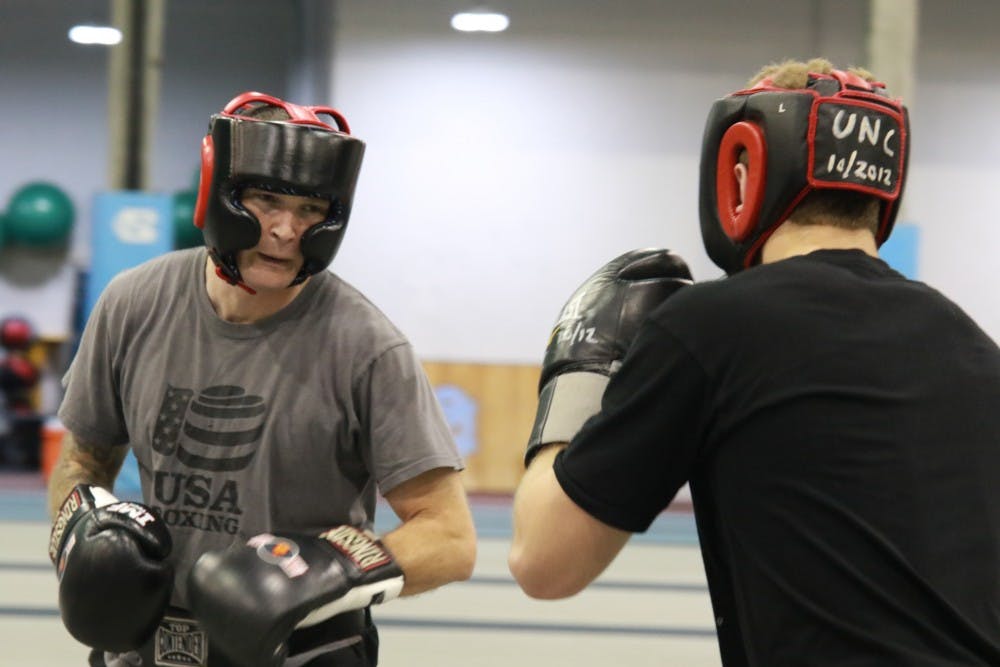When senior Jake Beeson joined the club boxing team his first year, he was looking for something he could do with his friends. His friends slowly stopped coming to workouts and found their own niches, but Beeson stuck with it.
In his sophomore season, Beeson finished second in the regional competition and third in nationals. He was club president for a year and a half and had planned on graduating last year, but after circumstances led to him taking time off from school, he stepped down and gave the position to Le Ho.
Now that Beeson back, he’s the head trainer and leads team workouts.
“I like teaching and helping people improve,” Beeson said. “Past head trainers haven’t done much on the sparring side. So they’ve taught like a workout class, but now I’m able to teach and show people how they would actually defend themselves and how they would apply different techniques.”
It takes a lot of time and dedication for boxing club members to even get to their first fight. Before being placed on the actual competitive roster, members must participate in a semester of non-contact training. Then they must receive clearance to take part in sparring practices and purchase a USA Boxing passbook, which provides secondary health and dental insurance, and liability coverage for the club. Once members start sparring, it’s up to Coach Josh Sokal to decide if and when they get to fight.
“Some people are like a duck to water, and other people it takes longer,” Sokal said. “There was one guy who started as a freshman, and it wasn’t until his senior year when we finally had him ready to compete and got him a couple matches.”
Sokal stressed the importance of making sure people are ready before their first fight and said that safety is always a top priority.
“In basketball, when Carolina plays someone who’s not very good, they put the ball in the basket 50 more times than the other team,” Sokal said. “In boxing, when the teams with elite boxers face teams that aren’t very good, we’re breaking faces.”
Boxing was an NCAA sport until 1960. It was dropped because of the disparity between the best and worst teams. Now it’s governed by the National Collegiate Boxing Association, and Sokal said that change has been crucial.




